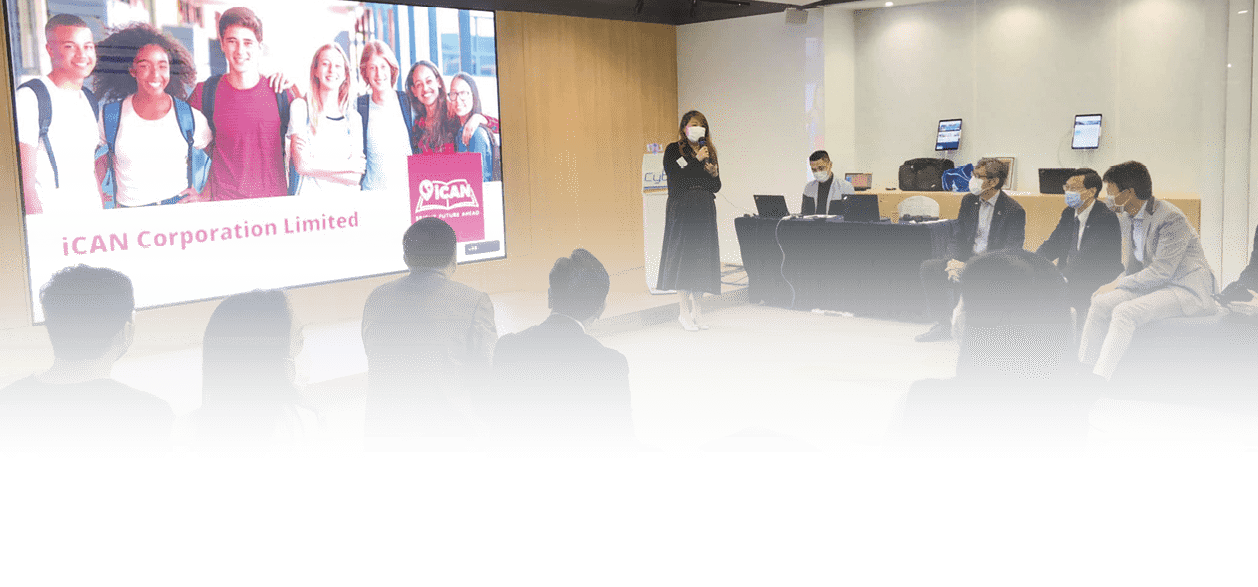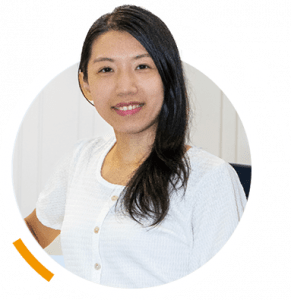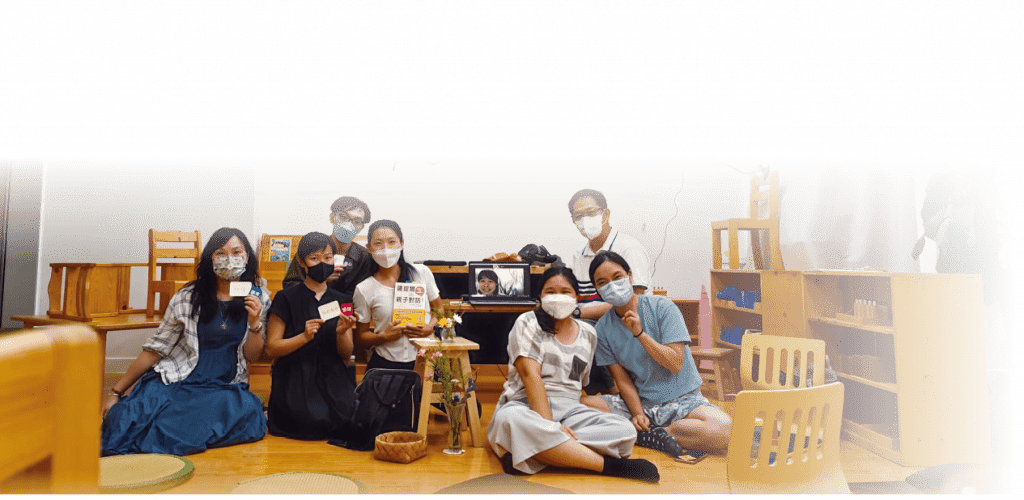Education × Technology: Positive energy abounds
In 2021, Fiona O established GloStudy to assist students in planning their study paths with advanced technology. The start-up was later successfully admitted to the Cyberport Incubation Programme. While working part-time for an educational institution during her university studies, Fiona noticed how students could be motivated to make progress. 'I was very pleased to see that students and parents were overjoyed at the learning outcomes they had achieved, and I became aware of my passion for education work,' she recalls. Back in 2017, Fiona set up the educational services provider iCAN. Its name connoted her expectation for everyone to be confident in achieving what they wanted. She loves embracing the feeling and power of hope, and her educational business stemmed from just one deep conviction: 'I believe I can make a positive impact on society and give people hope.'
Standing up and trying again
Yet it wasn't smooth sailing at all. GloStudy was not selected by Cyberport when the team submitted its first application, but Fiona has always been optimistic. 'It doesn't matter if we fail, but we need to know what's lacking before we can improve,' she reiterates. She wasn't shy about asking questions, and eventually learned from insiders that their plan had been considered insufficient in terms of business operation and technological application, among other aspects. After several rounds of revisions, they succeeded in their second attempt. The team adhered to the plan and completed the product prototype in just five months, enabling the start-up to graduate early and receive sponsorship from the Cyberport Creative Micro Fund. Fiona thanks Cyberport for its enthusiastic support, especially its big help in building industry networks.
Passionate about education, Fiona enrolled in the Master of Arts in Applied English Linguistics programme at the then OUHK in 2019 and decided to pursue a Doctor of Education degree after graduation. She was surprised to find that online information on EdD programmes was scattered and difficult to collate. 'There was no one-stop local online platform that provided comprehensive information on institutions and courses. This prompted me to devise a solution,' she explains. GloStudy applied artificial intelligence and big data analytics to find the most suitable institution and programme for each user according to answers they provided in questionnaires. Fiona reckons that advice obtained through high-tech systems is more objective than experience-based opinions from individuals. The company adopts a B2B business model and collects fees from schools and institutions with which it has commercial dealings. 'We do not charge students any fee. We aim to serve as a bridge to help them find a suitable school while offering institutions an option to spend their marketing budget wisely.'
Making bold attempts
Fiona admits that the GloStudy project was quite a risky endeavour as it involved the application of technology. 'As an arts student, I knew nothing about technology at first,' she recalls. 'In order to push my way through the obstacles, all I could do was to look for self-enrichment. I mainly learned by myself through reading technology-related books and digging into case studies of digital transformation of overseas organisations.' GloStudy's technological system was developed by the company itself. Fiona was at every meeting, paying full attention as she evaluated the effectiveness of each prototype.
iCAN was the starting point of Fiona's entrepreneurial journey, targeting mainly overseas studies consultation and study tour activities. However, business was hit hard by the pandemic and came to a sudden halt. 'That was a terrible fall for me. I'd put my heart and soul into this business and invested so much energy and resources in it,' says Fiona, her apprehension still palpable. She contemplated what to do time and again and was on the verge of giving up when she saw light at the end of the tunnel. 'My partner and I thought of optimising online courses as schools switched to online teaching. We jointly developed the iCADEMY platform, which provided tailor-made lessons for one-to-one or small classes of two to three students, with a best-fit study plan for everyone.' Fiona also followed up personally and adjusted the learning mode in a timely manner for better results. 'Initial market response was good. At last we turned a crisis into opportunities.'
She emphasises, 'Don’t let your thoughts be fettered by too many frames! A lot of people have entrepreneurial ideas, but are afraid to take the first step as they feel that their goals are hard to achieve.' As a liberal arts student who took the plunge into a technology-related business, Fiona has a clear motto: 'Give it a try!' She encourages aspiring entrepreneurs to step out of their comfort zone and find their passion by exploring their inclinations and areas that spark their interest.
Creating opportunities for yourself
Having managed an educational business for more than a decade, Fiona confesses that she is a bit scared from time to time. 'It's human nature to be afraid of failure,' she says. 'I choose to keep learning and overcome challenges.' She enrolled in a programme offered by the then OUHK because she felt that there was still room for improvement in her communication skills. She found the courses on English linguistics and English teaching particularly inspiring. 'These subjects helped enhance my insight into teaching and learning. I've applied the knowledge I acquired to teaching, which is also helpful to my business.'
Fiona loves sharing what she has learned. In addition to serving as a tutor at universities and the Productivity Council, she has often been invited to give talks. Earlier this year, she participated in the establishment of the non-profit organisation TIPSY Asia, which helps start-ups develop through various activities. 'Managing a start-up is no easy feat. With our existing resources, we hope to help other start-ups go abroad and connect with peers across Asia to form a business ecosystem.'
As someone who has experienced it all, she reckons, 'Starting a business involves lots of chores. We need to do everything ourselves. There will be struggles and failures, but we can learn a lot from them. This will lead to a more positive mindset and fresh perspectives, resulting in new ways of doing things, which will be very beneficial to the rest of our lives.' Fiona has no doubt that 'we create our own opportunities', and regardless of whether the environment is good or bad, there will always be opportunities. 'It all depends on our attitude. We can't control the external environment, but we can certainly adjust our mentality and the way we conduct ourselves.'

















